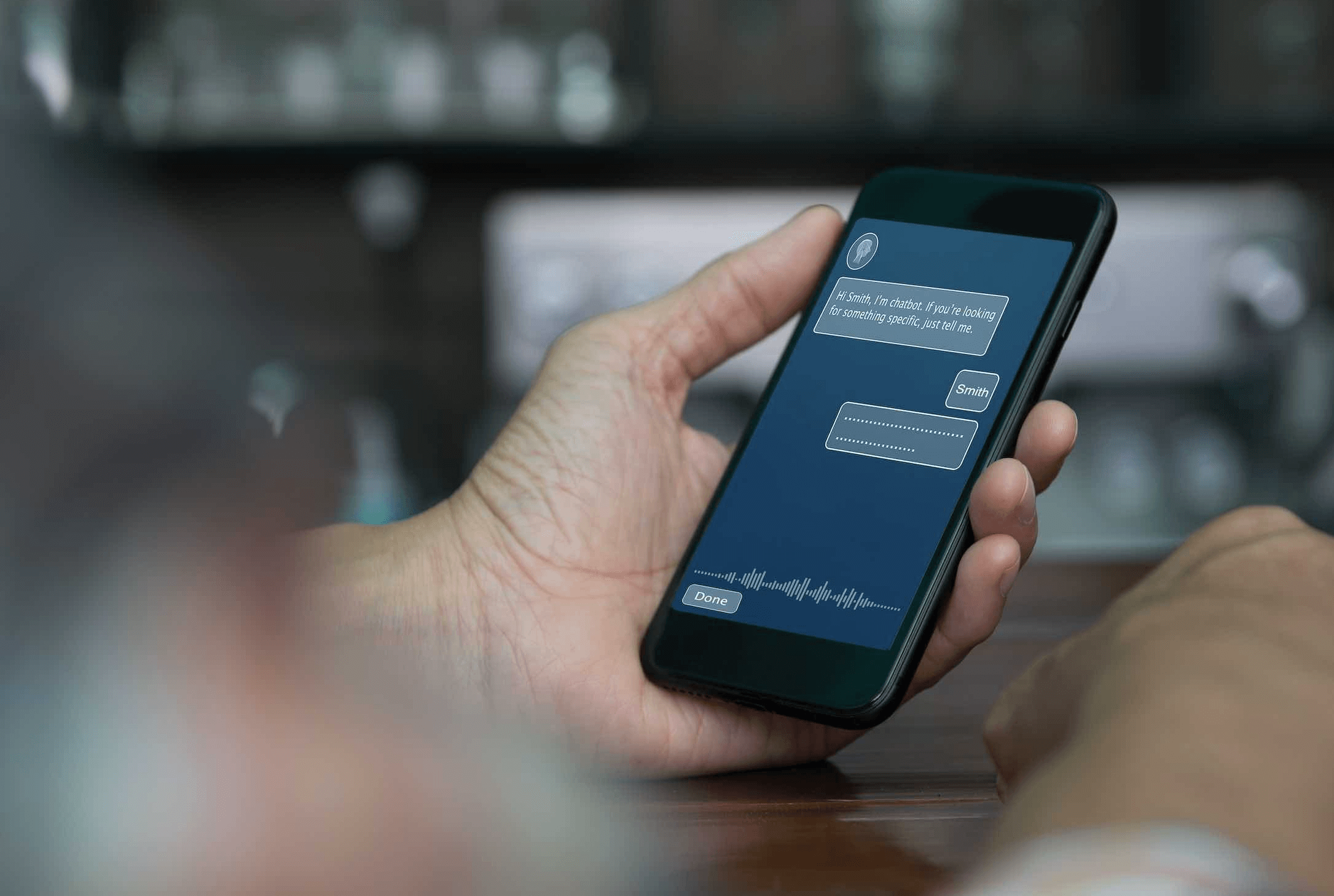Chatbots are revolutionising customer service. Find out here what benefits chatbots can bring to your business.
How smart technologies shape the customer experience
A representative survey by Bitkom Research, a market research company focusing on digitalisation, shows: In 2020, every fourth company was already using chatbots. Especially for modern customer service, these AI-based tools are trend-setting. We clarify which advantages companies derive from the use of intelligent chatbots.
What is a chatbot?
A chatbot is a technical dialogue system. It enables communication between humans and software that mimics natural conversation. Users can ask the chatbot questions, which it then answers in text or audio form. If a chatbot works with artificial intelligence and machine learning, it learns from the interactions so that its recommendations and answers improve. In this way, a chatbot becomes "intelligent" and can make deeper intentions visible by linking certain queries.
The history of chatbots goes back to the 1960s, when the first virtual psychotherapist called "Eliza" was developed. Since then, communication between humans and computers has been optimised many times over and especially in the course of digitalisation, chatbots are experiencing a real boom.
Artificial intelligence: How chatbots become smarter
In order to answer questions, chatbots either resort to ready-made answer catalogues or to existing dialogues. The queries are first dissected and analysed according to pre-programmed rules, recognition patterns and algorithms. Then the chatbot searches its databases, linked systems or the internet for a suitable answer.
Through this search and sufficient training of artificial intelligence in customer service chatbots capture the content of the question and establish links to frequent intentions. With intelligent interfaces, they access other internal company systems such as the logistics software: for example, an intelligent chatbot in the customer service of a shipping company not only answers questions about the shipping status, but also indicates the expected delivery time.
What types of chatbots are there?
The field of application of the chatbot is coordinated on the basis of the different functionalities of this AI. In total, there are three of them, which are presented below:
Rule-based chatbots
This type of chatbot uses predefined answer options when answering questions. If a user asks a question that is not included in this catalogue of rules, the chatbot cannot answer. The system therefore quickly reaches its limits and is therefore only useful for simple processes and limited topics. The use of rule-based chatbots is worthwhile for temporary marketing campaigns, for example.
Intelligent chatbots
Intelligent chatbots work with artificial intelligence, machine learning and natural language processing. They recognise the text entered by the user and analyse the content according to intention and object. To make this possible, a comprehensive concept and training with language files is necessary. Only then is it possible for the chatbot to imitate a human conversation. Although this makes the development time longer, the effort is worth it. Because: A high-quality chatbot raises the user experience to a new level. Users no longer have to wait in the customer service queue because the chatbot helps them directly. This leads to higher customer satisfaction and more efficient customer service. In addition, intelligent chatbots provide data in real time, which has a high potential for generating insights.
Application-specific chatbots
This type of chatbot combines rule-based and intelligent dialogues. Usually, the user experience is additionally enhanced with graphical elements to offer users a personalised interface. For example, a calendar pictogram could lead the user directly to booking an appointment. Application-specific chatbots are particularly suitable for insurance, online banking or advisory applications in customer service.
Use of chatbots in customer service
Chatbots based on artificial intelligence enrich various departments and industries. They are increasingly being used in customer service in particular. For customers, this means above all shorter waiting times and independence from opening hours.
How do chatbots create trust?
In order for the communication between customer and chatbot to succeed, customers need a certain basic trust in the self-learning system. A 2018 study from Oslo investigated the question of which factors are relevant for users to trust chatbots in customer service. The result: The better a chatbot imitates a human conversation, the more trusting it appears to users. Another important aspect is the fast provision of correct information and good service.
Practical example: The Salesforce chatbot Einstein
Salesforces' Einstein chatbot brings with it the prerequisites for a high level of customer trust. Through natural language understanding, artificial intelligence and machine learning, it provides customers with information quickly and in a targeted manner. Thanks to the versatile training of the bot, it can recognise certain emotions, such as frustration, and forwards users to human advisors in such cases. To enable human-like and personalised communication, the chatbot Einstein expands its learning model with each new request. In addition, it can be adapted to any corporate design thanks to its simple implementation and high adaptability - and thus supports proactive customer service.

Conclusion: Chatbots enrich companies sustainably
Chatbots increase the success of businesses in many ways. Higher efficiency and cost savings improve the competitiveness of companies. As an expert for digitalisation, COViS supports all steps around the topic of chatbots - from consulting to implementation. The Salesforce Chatbot Einstein developed by COViS also offers companies a high-quality and intelligent system for customer communication.



